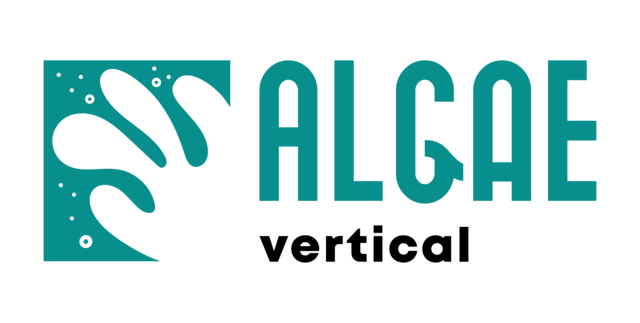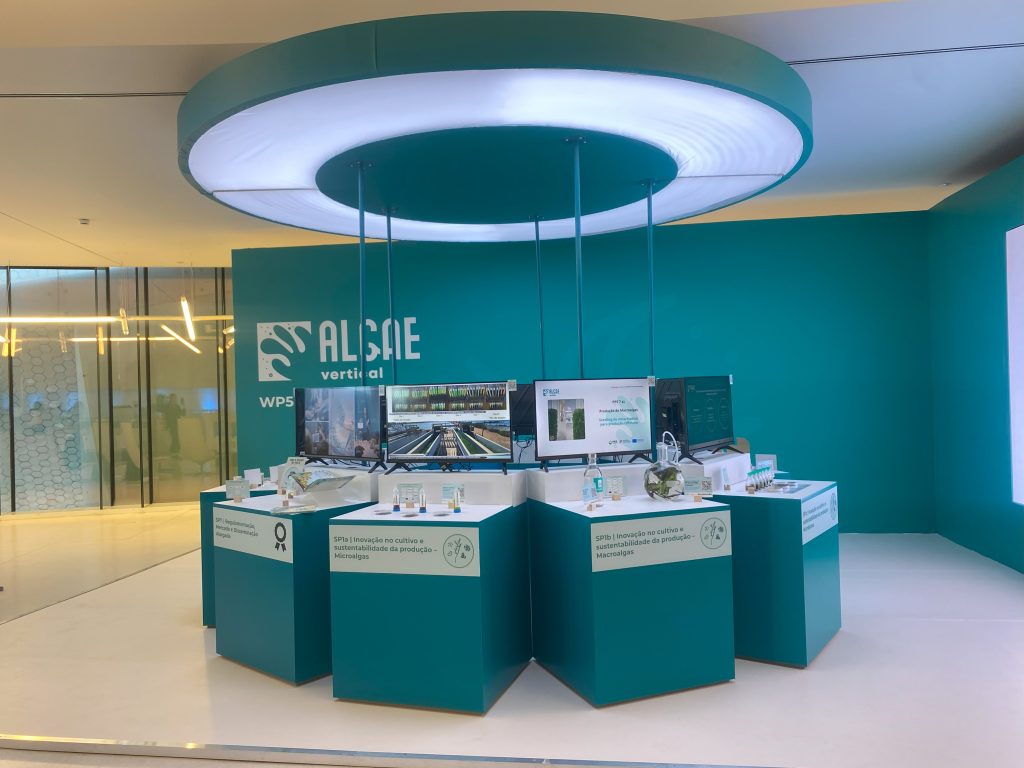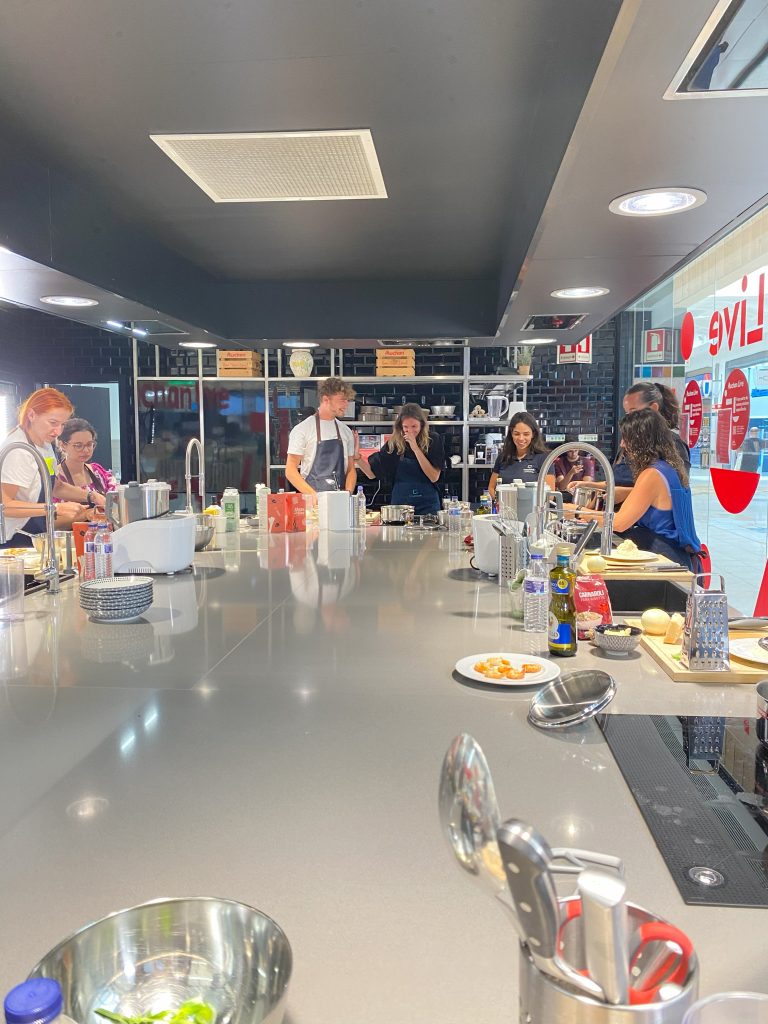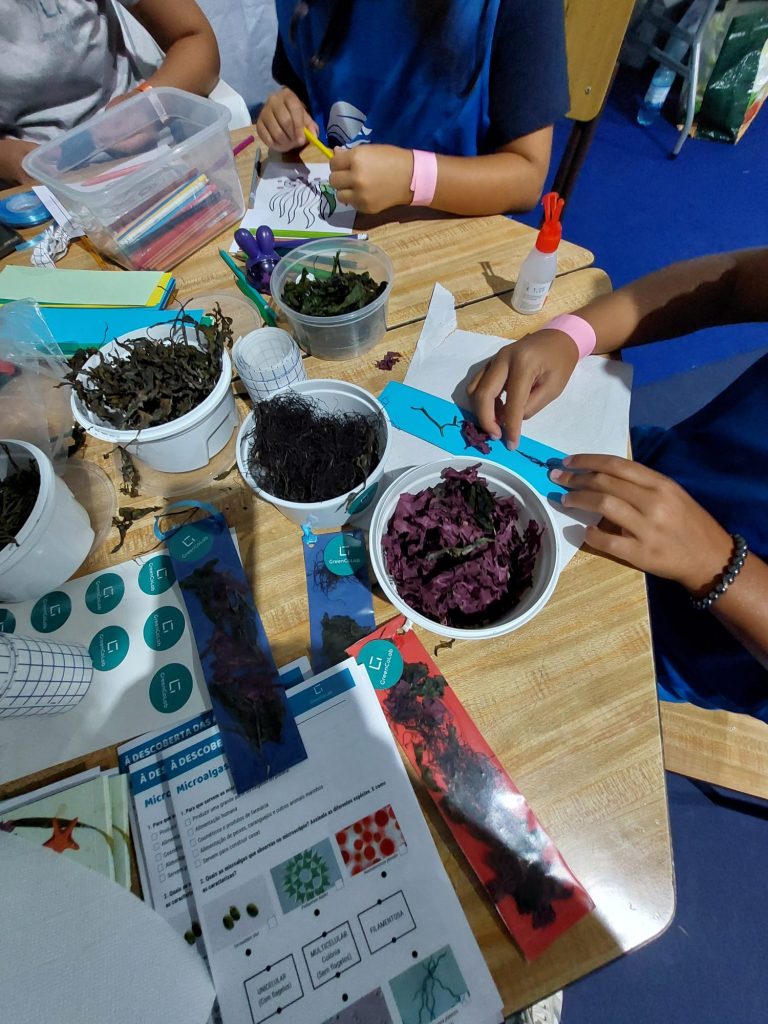Vertical Algas had a remarkable presence at Aquaculture Europe 2025, held in Valencia from 22 to 25 September. The event drew around 4,000 participants, comprising scientists, industry professionals, students, and strategic partners, making it a unique opportunity for knowledge exchange and experience sharing.
Several co-promoters presented the latest results of their research through scientific posters and oral presentations, highlighting the role of research and innovation in advancing aquaculture:
Posters
-
Impact of transport on Laminaria ochroleuca seedlings for seaweed farming, Maria Francisca Sá, CIIMAR
-
First steps on Saccorhiza polyschides cultivation in Portugal’s southern coast, M. A. P. Silva, S2AQUA
-
Pilot-scale cultivation and growth assessment of a random mutagenesis-derived Phaeodactylum tricornutum strain for aquaculture applications, G. Bastos, Necton
-
Optimising microdiet performance for fish larvae: effects of binders and technical additives in fluidised bed agglomeration, André Santos, SPAROS
-
Dietary inclusion of Euglena gracilis bioactive compounds can modulate the European seabass immune responses following two different infection models, Benjamin Costas, CIIMAR
-
Dietary microalgae extracts as functional ingredients in European seabass (Dicentrarchus labrax) juvenile diets: effects on immunity and disease resistance, André Cunha, ICBAS
-
Different combinations of marine algae biorefined extracts as boosting strategies to improve European seabass (Dicentrarchus labrax) juveniles immunity, Paulo Santos, ICBAS
-
Size-specific gut mucosal responses to feed additives in European seabass (Dicentrarchus labrax), Rute C. Félix, GreenCoLab
-
Stage-specific responses of Senegalese sole postlarvae to micro- and macroalgae dietary blends, C. Freitas de Oliveira, CCMAR
Oral presentations
-
Enhancing sole larval robustness with algae-based solutions: insights into growth, redox status and gut integrity, Aqsa Sharif, CCMAR
-
Potential and challenges of algae-based functional diets for enhancing seabream resilience, Rita Teodósio, CCMAR
These works reflect the commitment, rigour, and creativity of the research teams, while showcasing the tremendous potential of algae and microalgae in driving sustainable aquaculture. It was a true privilege to share this knowledge with scientists, industry partners, and all participants, in an inspiring and collaborative environment that reinforces the sector’s role in building a more sustainable blue future.



